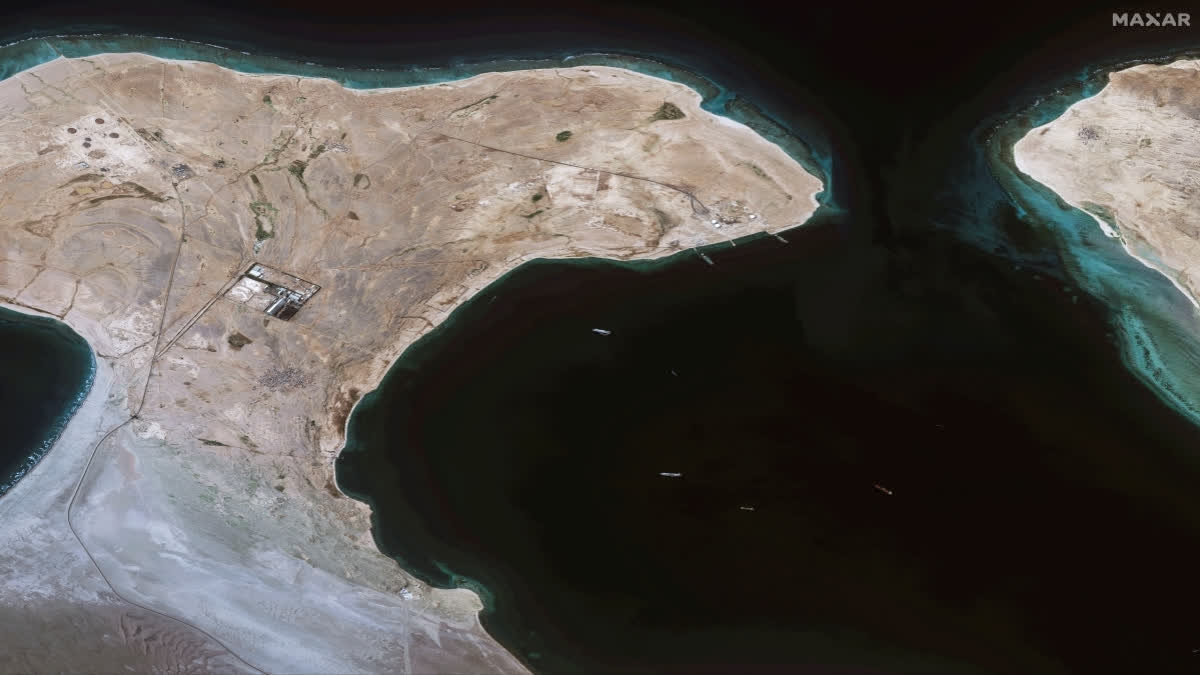New Delhi:With Iran-backed Houthi rebels launching attacks on ships passing through the Red Sea amidst the Israel-Hamas war in Gaza, India has reason to be worried as was evident during Prime Minister Narendra Modi’s latest telephonic conversation with his Israeli counterpart Benjamin Netanyahu.
“The two leaders discussed the importance of securing freedom of navigation in the Bab-el-Mandeb, which is threatened by the aggression of the Houthis, instigated by Iran, and the global interest in preventing attacks on the global economy and trade, as well as the Indian and Israeli economies,” a statement issued by the Israel Prime Minister’s Office issued after the conversation on Tuesday read. “Indian Prime Minister Modi noted that freedom of navigation is an essential global necessity that must be ensured.”
The Houthis, based in Yemen, have been targeting ships carrying cargo for Israel passing through the Red Sea. The Houthi attacks with drones and missiles are a manifestation of the expansion of the Israel-Hamas war that has claimed over 20,000 lives so far, a majority of them civilians in the Palestinian territory of Gaza.
On Tuesday, the Houthis, predominantly comprising Zaidi Shias living in northern Yemen, said that they would not stop their attacks on ships having ties with Israel passing through the Red Sea to exact revenge for the war against Hamas. This came after US Secretary of Defense Lloyd Austin announced the formation of a 10-nation naval coalition and the launch of Operation Prosperity Guardian to protect commercial vessels passing through the Red Sea. Apart from the US, the coalition comprises the UK, Bahrain, Canada, France, Italy, Netherlands, Norway, Seychelles and Spain.
The Red Sea, linked to the Suez Canal, stands as one of the globe’s busiest maritime pathways, providing an alternative to the longer route around the Cape of Good Hope in South Africa. This waterway is indispensable, playing a critical role in upholding the political and economic stability of numerous nations. Positioned strategically between Asia and Africa, the Red Sea serves as a significant conduit that separates the Middle East from the Far East and Europe from Asia.
The geopolitical significance of the Red Sea is underscored by its natural role as a border between the eastern coast of Africa and the western coast of the Arabian Peninsula. It functions as a crucial passage for the secure transportation of oil, extending from the Bab el-Mandeb in the south to the Suez Canal in the north. Given that oil remains a primary global energy source, this shipping lane retains its pivotal status as a fundamental channel for the transportation of oil from the Gulf.
Among the vessels that the Houthis have attacked was a tanker carrying a shipment of India-manufactured jet fuel. The vessel narrowly managed to evade two missiles fired by the Houthis near Bab el-Mandeb a week ago. Earlier, in November, the Galaxy Leader, a cargo vessel en route from Turkey to India with 25 people on board was hijacked in the southern Red Sea by the Houthis.
Such incidents have raised serious concerns in New Delhi as the Red Sea shipping route is vital for India’s trade, energy security, and geopolitical influence.
How important is the Red Sea shipping route for India commercially?
The Red Sea serves as a pivotal maritime pathway linking the Indian Ocean to the Mediterranean Sea, through which Indian commodities, encompassing crucial oil and gas imports, traverse. A substantial segment of India's trade, notably with Europe and North Africa, hinges on the seamless operation of the Red Sea shipping route. Ensuring the security and stability of this route is imperative for India's economic prosperity.
